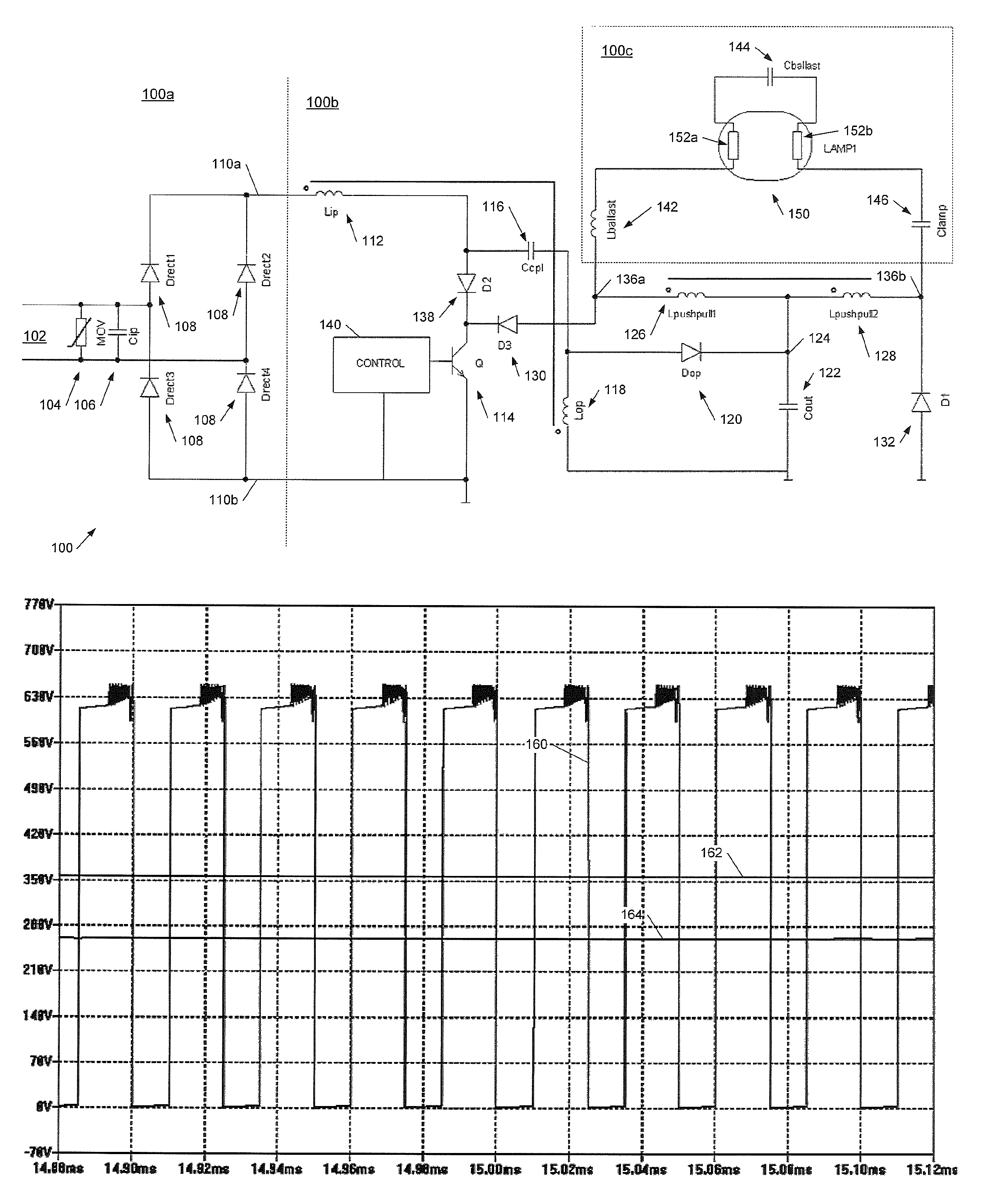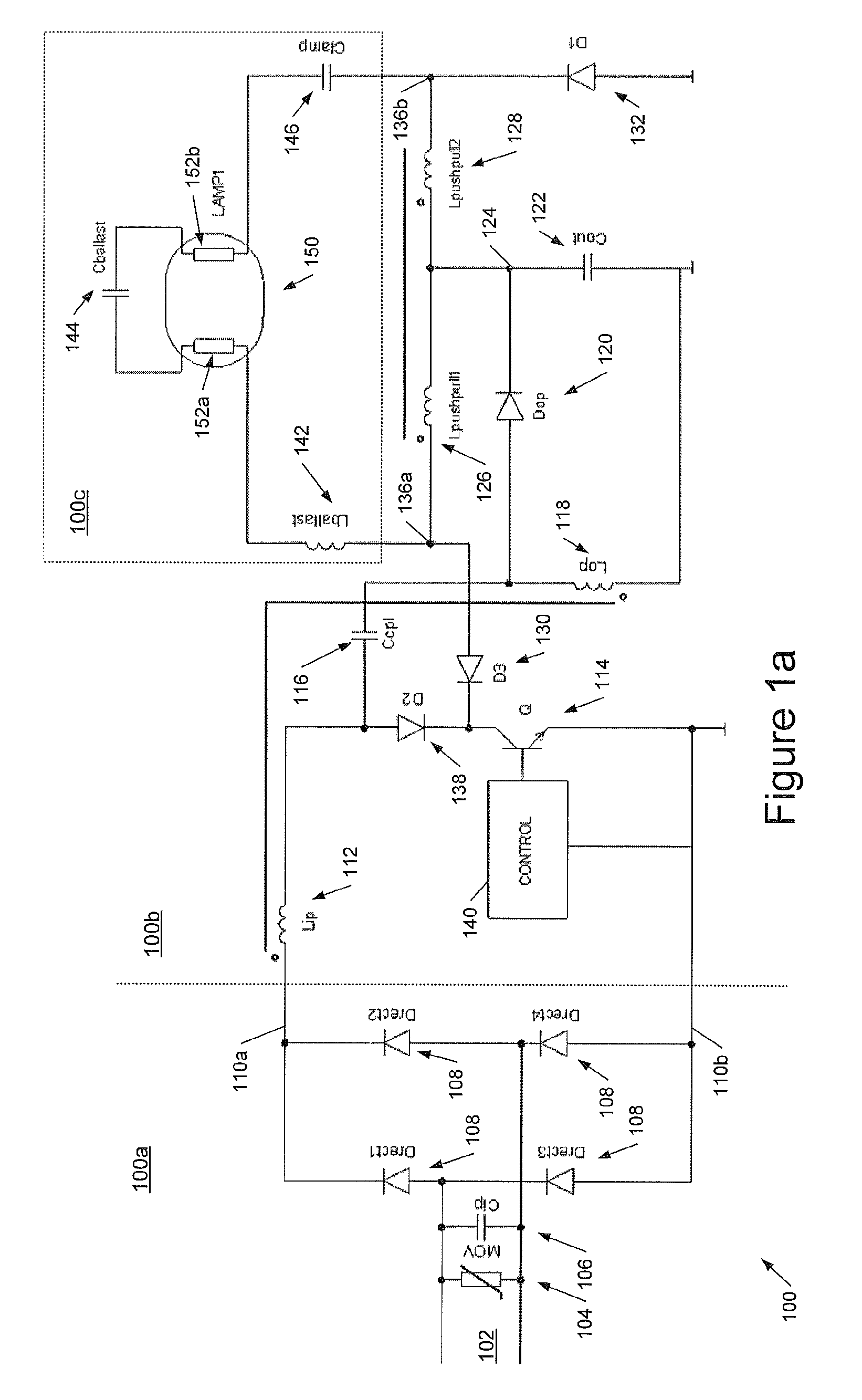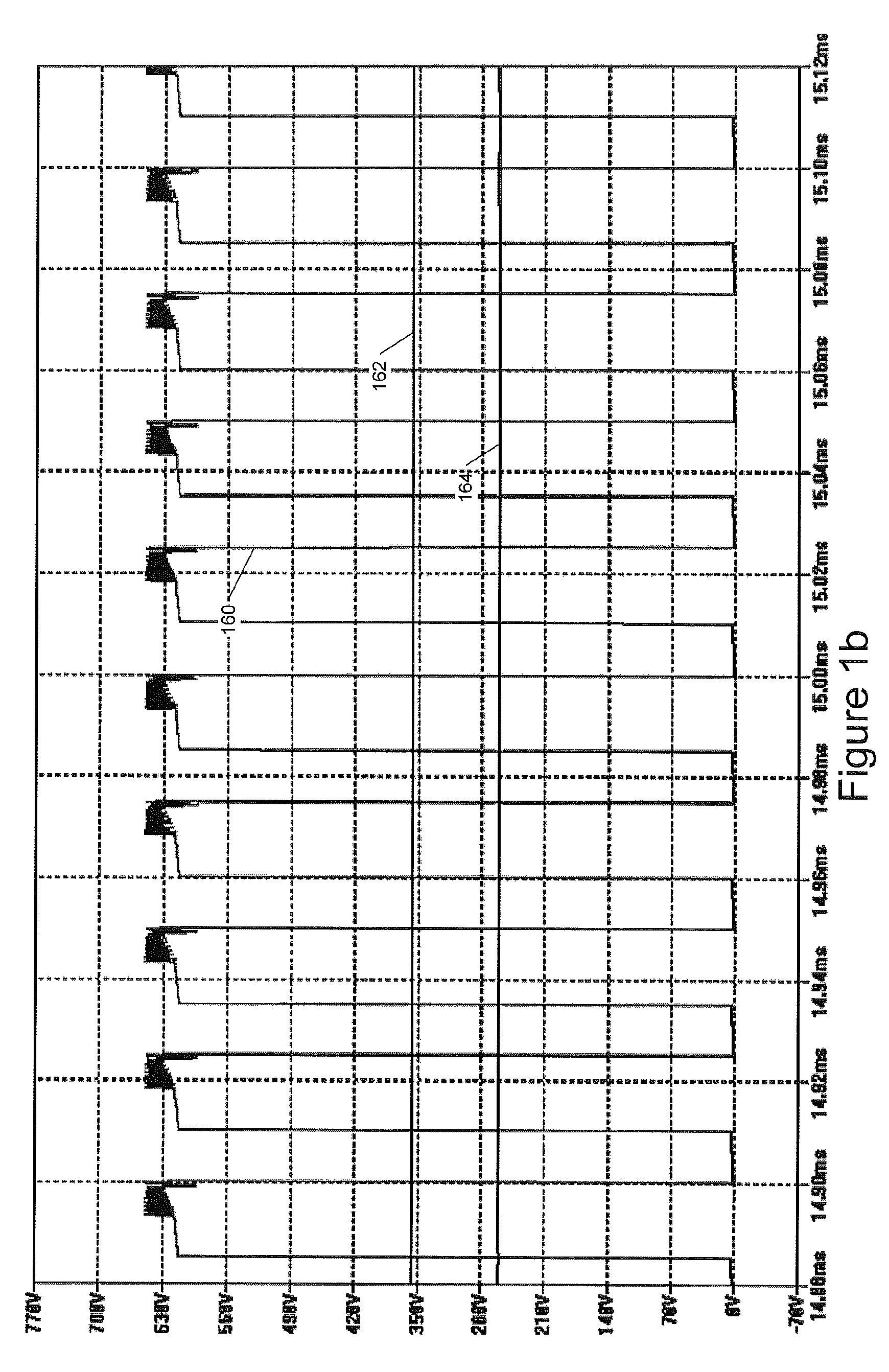Lighting controllers
a controller and light technology, applied in the field of light controllers, can solve the problems of high conductivity, high conductivity, and always greater dc output voltage than dc input voltag
- Summary
- Abstract
- Description
- Claims
- Application Information
AI Technical Summary
Benefits of technology
Problems solved by technology
Method used
Image
Examples
second embodiment
[0043]Referring now to FIG. 2, this shows a lighting controller (electronic ballast) 200 illustrating a first variant of the arrangement of FIG. 1. In the circuit of FIG. 2 the push-pull output stage has an additional pair of push-pull inductors, Lpushpull3202 and Lpushpull4204. This arrangement effectively taps the push-pull inductors of FIG. 1a and may be used, for example, if the ac output voltage is undesirably high (although the output voltage is adjustable it is generally preferable to design a circuit so that the output voltage is broadly in the desired range). Providing push-pull output inductors with one or more additional taps increases the flexibility of the design.
[0044]FIG. 3 shows a third embodiment 300 of electronic ballast in which the push-pull output stage employs a transformer secondary for coupling to the lamp, Lpushpull3.
[0045]FIG. 4 shows a fourth embodiment 400 of an electronic ballast including a transformer secondary as illustrated in FIG. 3, and configured ...
embodiment 500
[0046]FIG. 5 shows a further embodiment 500 of the lamp controller (electronic ballast) employing multiple transformer secondaries 502a, 502b each configured to drive one or more lamps. The skilled person will understand that the polarity of the secondary winding is not important in the arrangement of FIG. 3, 4 or 5.
[0047]Referring now to FIG. 6, this shows an alternative design for a lighting controller (electronic ballast) 600 which employs a half bridge output stage rather than using a push-pull topology. In the arrangement of FIG. 6 like elements to those of FIG. 1a are indicated by like reference numerals, and it will be appreciated that the mains rectification stage 100a and lamp circuit 100c correspond to those shown in FIG. 1a. However the arrangement of FIG. 6 employs a SEPIC converter 600a coupled to a half bridge output stage 600b to provide an ac voltage output to the lamp circuit 100c. The half bridge output stage comprises a half bridge driver 602, which may be synchro...
PUM
 Login to View More
Login to View More Abstract
Description
Claims
Application Information
 Login to View More
Login to View More - R&D
- Intellectual Property
- Life Sciences
- Materials
- Tech Scout
- Unparalleled Data Quality
- Higher Quality Content
- 60% Fewer Hallucinations
Browse by: Latest US Patents, China's latest patents, Technical Efficacy Thesaurus, Application Domain, Technology Topic, Popular Technical Reports.
© 2025 PatSnap. All rights reserved.Legal|Privacy policy|Modern Slavery Act Transparency Statement|Sitemap|About US| Contact US: help@patsnap.com



